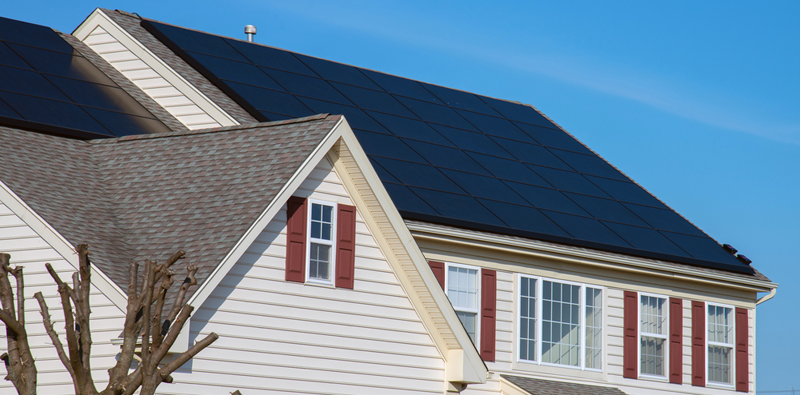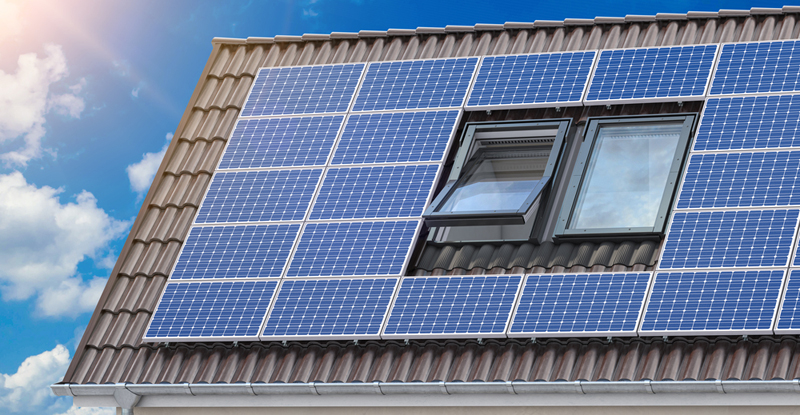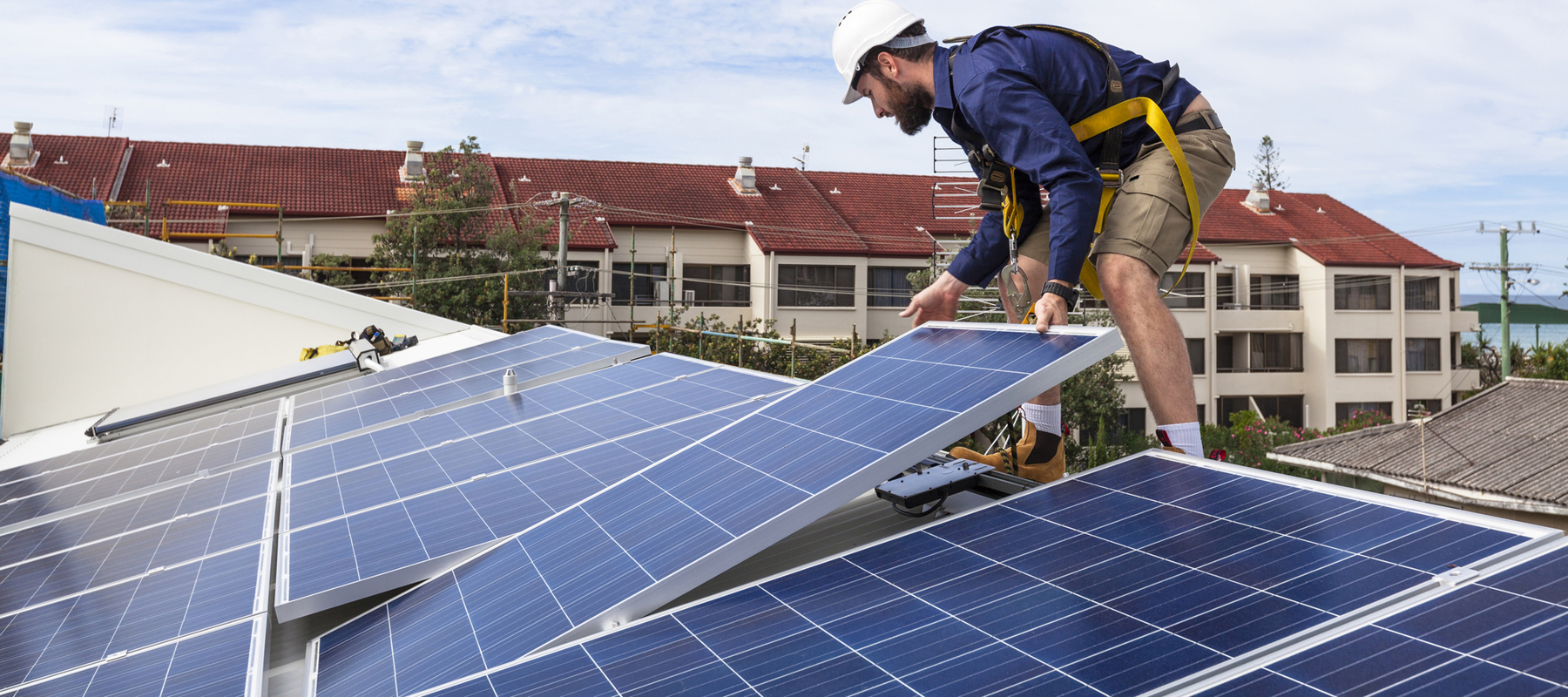Solar Panels for Your Home: Weighing Costs, Savings and Providers
Last Updated: December 07, 2023

Fact Checked By: Ryan Maguire
On This Page
When you consider rising energy prices, mounting concern about global warming, and advances in alternative energy technology, there's never been a better time to invest in solar panels.
There are numerous benefits to doing so. This buying guide explains what they are, the basics of solar energy, and the cost of solar panels.
Residential Solar Panel Costs #
Installing solar panels on a home costs approximately $15,000 to $25,000 on average. Key factors impacting solar panel system pricing are:
System Size
- Number of solar panels
- System power capacity (kilowatts)
Equipment Needs
- Inverters, racking, mounts, wires
- Batteries for energy storage
Installation Complexity
- Roof type/condition, pitch, accessibility
- Permitting and grid connections
Location
- Regional equipment and labor costs
- Sunlight levels/weather in area
Financing Options
- Full purchase, solar loans, renting/leasing
- Tax credits and solar incentives in area
While buying solar panels has a significant upfront cost, owning the system allows homeowners to reap the most financial savings over a 20-30 year lifespan. However, flexible options like solar leases and PPAs help avoid high initial purchase costs in exchange for ongoing monthly payments.

Solar Panel Purchase vs Lease vs PPA #
Solar Purchase
- Higher upfront cost - Ranges $15k-$30k+
- Max savings over 20-30yr system life
- Keep tax credits and incentives
- Own panels to sell home/property
Solar Lease
- Lower/no upfront cost
- Fixed monthly payment
- Typically 10-20yr term
- Ongoing payment doesn't decline
- Do not own panels
PPA (Power Purchase Agreement)
- Little or $0 upfront costs
- Only pay for energy produced
- Typically 20yr contract
- Lower rates than utility
- Do not own panels
Key Differences
- Purchasing ownership carries higher initial price but unlocks greatest lifetime value
- Renting/leasing avoids initial purchase in exchange for ongoing monthly costs
Choose option fitting your budget flexibility and long term goals regarding panel ownership/savings.
Real Life Residential Solar Panel Installation Cost Examples #
"I paid $19,845 out-of-pocket after incentives for a 6.2 kW solar system on my 1,500 sq ft ranch house here in Florida. With sun levels, it will pay off in about 5 years." - David S.
"We leased an 8.4 kW solar array with 25 panels from our utility through their renewable energy program. It required $0 down and has a monthly lease payment of $65 which covers installation and ownership." - Jenna P.
"I took out a home improvement loan to finance a 5 kW solar array for my suburban home. My total financed amount was $22,137 including a new roof and electrical work. Monthly payments are $255." - Khloe M.
"For grid independence, I purchased a sizable 10 kW off-grid solar + battery backup system for our rural 2 acre property which cost $43,860. But it will provide 100% of our electricity." - Theo G.
"We needed serious solar power being off-grid in Arizona. Our installer customized a large 20 kW ground mount solar system with concrete ballast footings which cost $95,000 after federal tax incentives." - Samantha R.
"To run my 1/2 acre hobby farm, I leased an 11.6 kW solar array with 6 Powerwall batteries from Tesla which required no money down. My 20 year leasing contract has a $205 per month payment." – Eli L.
As you see, solar panel system costs ran from $15K for smaller roof installs to $90K+ for off-grid ground arrays, based on output needs, financing method and qualifying incentives.
The Benefits of Using Residential Solar Power #
There are many advantages to installing solar panels in your home or business, including:
- Higher efficiency, lower costs: The price of PV panels has fallen dramatically in the past several years, making residential solar panels cheaper than ever before. When you consider the various government incentives and tax breaks that are available for solar panel installation, the cost can be even lower. In addition to solar being more affordable, home solar panels are now more efficient, allowing smaller cells to generate more power.
- Cost savings: Although the upfront costs of residential solar energy infrastructure can be quite expensive, you should still be able to recoup your investment in 7 to 25 years. In the meantime, residential solar power will stabilize your energy costs and free you from skyrocketing energy prices. With an average life span of 30 to 40 years, once your investment is paid off, you'll enjoy years of free energy.
- Increase the value of your home: Statistics show that homes with residential solar systems sell faster and for more money.
- Reduce your environmental impact: Coal, which dumps large amounts of pollutants into the environment, still accounts for the bulk of U.S. energy production. Solar panels for your home, on the other hand, are emissions-free.
How fast your solar panels pay for themselves will heavily depend on where you live.
What is the sunlight rate in your area?
Do you have snow that covers your roof for part of the year?
Obviously, the sunnier it is in your state the better of you will be installing solar panels on your home.
Solar Panel Tax Credit #
Federal Solar Tax Credit - This allows you to deduct 26% of solar installation costs from your federal taxes. For 2022-2023, the credit will be 26%. It drops to 22% in 2023 before expiring.
State Tax Credits - Over 20 states offer an additional state tax credit or rebate for solar installations, typically 10%-35% of costs. These supplement the federal incentives.
Utility Rebates - Local utility companies and municipalities offer solar rebates as incentives, typically $500 - $1,000 per installed kW. Check your local utility.
Solar Renewable Energy Certificates - With an SREC program, every 1,000 kWh solar energy produced earns a certificate that can be sold for cash, further offsetting system cost.
Depreciation Benefits - The full purchase and installation price of a solar array can qualify for accelerated depreciation deductions on federal taxes.
Consult a solar installer or tax professional to maximize the credits, savings, and incentives available for going solar in your region. The tax advantages provide substantial savings.
Top Residential Solar Companies #
- Premium solar panels
- Optimized system design
- 25 year performance guarantee
- High-efficiency solar panels
- Integrated Powerwall battery options
- Low cost solar subscriptions
- Complete custom installs
- Flexible finance plans
- Solar, battery, EV charging bundles
- Specialized equipment packages
- Purchase and power contract options
- Rewards solar program
- Boutique regional provider
- Strong equipment warranties
- Community solar options
- Consumer comparison marketplace
- Multiple installer partnership bids
- Unbiased solar shopping guidance
